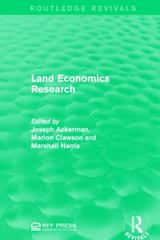Question
Peter Dennis is the owner-operator of a local gas station and convenience store. Peter chose to locate his store in an area at least 10
Peter Dennis is the owner-operator of a local gas station and convenience store. Peter chose to locate his store in an area at least 10 minutes away by car from the nearest supermarket or grocery store. For the most part, Peter's business has been quite successful. Then one day he noticed that a new grocery store was opening just one block away. A month later he noticed that a new convenience store had opened for business less than a 3-minute drive away. Peter realized that to maintain the status quo in the face of this new competition, he would have to make some tough decisions about his pricing and promotion policies and the mix of items carried in his store. The items that he carried were typical of those found in retail establishments of this type, with beer, cigarettes, hot coffee, and soft drinks accounting for about 75 percent of total sales. Soft drinks were by far the best-selling item in his store. Essentially, the retail price of soft drinks was based on the wholesale price plus a markup of about 40 percent. Peter recognized that this markup was considerably higher than the one used by a supermarket, but he believed that people were willing to pay more for the convenience. On certain occasions, Peter would offer a particular brand of soft drink at a substantial discount. Regardless of whether he lost or made money on soft drinks by this action, he found that it helped to attract additional customers into his store, and gasoline sales actually increased. 4 Several people from an adjacent town told him that they waited until they were in the vicinity of his station to fill their tanks because of his discount on soda. Given the public's responsiveness to special discounts on soft drinks and the ability of this product to promote other products, Peter decided to use the pricing of soft drinks as his main weapon against his new competition. Instead of offering a temporary discount, he decided to reduce the price of soft drinks permanently. However, after a month, despite the lower soft drink prices, there was a noticeable decline in his revenue from soft drinks. Peter realized that he would have to reassess his competitive tactic.
Required
a. Explain the relationship between elasticity and total revenue for all three categories of elasticity. (15 marks)
b. One assumption in economics is that certain factors are held constant in the examination of the impact of one variable. What non price factors should Peter consider in making his decision?
Step by Step Solution
There are 3 Steps involved in it
Step: 1

Get Instant Access to Expert-Tailored Solutions
See step-by-step solutions with expert insights and AI powered tools for academic success
Step: 2

Step: 3

Ace Your Homework with AI
Get the answers you need in no time with our AI-driven, step-by-step assistance
Get Started


